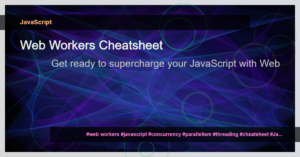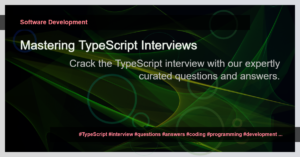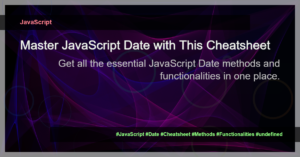NestJS Interview Cheatsheet
Are you preparing for a NestJS interview? Do you want to ace the interview by showcasing your expertise in NestJS and impressing the interviewer? Look no further! This cheatsheet is designed to help you prepare for your NestJS interview by providing you with a collection of common NestJS interview questions and example answers.
Problem Solving
NestJS is a powerful framework for building scalable and efficient server-side applications. As a NestJS developer, you will be required to solve various problems and challenges. Here are some interview questions that assess your problem-solving skills in the context of NestJS:
1. How do you handle asynchronous tasks in NestJS?
In NestJS, you can handle asynchronous tasks using Promises, Observables, or async/await syntax. For example, to handle an asynchronous task using async/await, you can use the async keyword to mark a function as asynchronous and use the await keyword to wait for the result of an asynchronous operation.
async function fetchData() {
const result = await fetchDataFromAPI();
// Handle the result
}
2. What is middleware in NestJS and how does it work?
Middleware in NestJS is a mechanism that allows you to intercept incoming requests and perform certain actions before they reach the route handler. It can be used for tasks such as authentication, logging, error handling, etc. Middleware is executed in a specific order defined by you.
@Injectable()
export class LoggerMiddleware implements NestMiddleware {
use(req: Request, res: Response, next: NextFunction) {
console.log('Logging the request...');
next();
}
}
3. How do you handle authentication and authorization in NestJS?
NestJS provides built-in support for authentication and authorization through various strategies like Passport.js. You can implement authentication and authorization using guards and decorators provided by NestJS. For example, you can use the AuthGuard to protect a route and ensure that the user is authenticated before accessing it.
@UseGuards(AuthGuard('jwt'))
@Controller('api/users')
export class UserController {
// Route handler
}
Code Examples
To help you better understand the concepts and solutions to the interview questions, here are some code examples:
Example 1: Handling Asynchronous Tasks
async function fetchData() {
const result = await fetchDataFromAPI();
return result;
}
Example 2: Middleware Implementation
@Injectable()
export class LoggerMiddleware implements NestMiddleware {
use(req: Request, res: Response, next: NextFunction) {
console.log('Logging the request...');
next();
}
}
Example 3: Authentication and Authorization
@UseGuards(AuthGuard('jwt'))
@Controller('api/users')
export class UserController {
// Route handler
}
Conclusion
Preparing effectively for a NestJS interview requires a deep understanding of the framework and its key concepts. By familiarizing yourself with common interview questions and practicing example answers, you will be better equipped to showcase your skills and expertise in NestJS. Use this cheatsheet as a reference to boost your preparation and increase your chances of success in your NestJS interview.
Happy coding and good luck with your interview!





